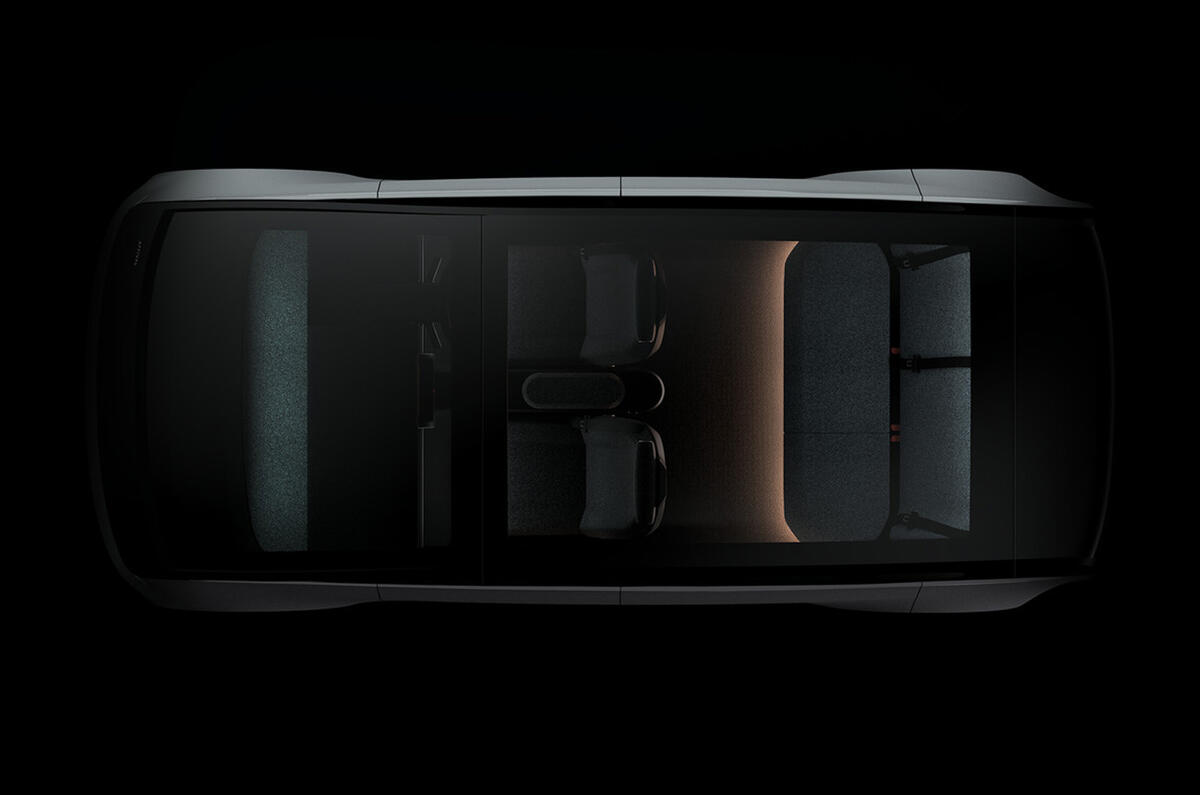London-based electric vehicle start-up Arrival has partnered with mobility giant Uber to create "an affordable, purpose-built electric vehicle for ride-hailing drivers".
Expected to enter production in the third quarter of 2023, the 'Arrival Car' will be designed in collaboration with Uber drivers and will prioritise "driver comfort, safety and convenience". A final design concept is set to be revealed by the end of this year.
The move marks Arrival's first foray into the passenger car sector, following the reveals of its commercially focused electric Bus and Van concepts. A preview image, although light on detail, suggests the Car will adopt the company's minimalist design cues, with a focus on providing a spacious and airy interior.
Together, Arrival's trio of electric vehicles will provide an "integrated transportation ecosystem" designed to help cities reduce emissions.
The announcement of the project follows Uber's recent pledge to operate an all-electric fleet in London by 2025, and across North America and Europe by 2030. Already, Uber customers can choose to ride in an electric car at no extra cost and the firm claims more than 3.5 million Uber journeys in London have been in fully electric vehicles.
The typical ride-hailing vehicle - of which there are around 30 million in operation globally - covers an average of 28,000 to 31,000 miles annually, Arrival says, which compares with the average private car's yearly use of around 7500 miles.
Last year, the mobility firm partnered with Renault and Nissan to facilitate the wider use of EVs across its European fleet. As part of the deal, Uber drivers were offered financial incentives on the Renault Zoe and Nissan Leaf, alongside an education programme regarding the benefits of EV usage.
Commenting on the latest partnership, Arrival senior vice president Tom Elvidge said: “We are confident that electrifying ride-hailing vehicles will have an outsized impact on cities and we are keen to support drivers as they manage this transition.
"Arrival Car will be designed around drivers’ needs to create a vehicle that is affordable, durable and desirable.
"We have a great partnership with UPS to create a best-in-class electric delivery vehicle and we hope to replicate that success with Uber as we develop the best possible product for ride hailing that elevates the experience of the passenger and improves drivers’ health, safety and finances.”
READ MORE
Renault and Nissan partner with Uber to encourage EV adoption
Analysis: inside Arrival, the £4 billion UK start-up
Hyundai and Kia invest £85 million in British EV start-up Arrival









Join the debate
Add your comment
Good luck to Arrival. A UK success story would be welcome. But a little more humility from them wouldn't go amiss - they describe their Amazon van as 'best in class', despite the fact it isn't yet in service. To my mind that makes the risible Nissan electric van better at this moment in time...
As for Uber, they'd get rid of their drivers tomorrow if they could but it's not so simple. Full autonomous cars are probably still a decade away, at least. In fact, I think the game is to ban driver operated cars from sections of the road network first.
Announced on the heels of the DfT legalising ALKS (automated lane keep assist). This is the endgame for all of these transport booking companies and they'll happily run at a loss for ten years to get to fully driverless vehicles. With the gig economy/employment ruling recently their most expensive "part" just got even more important to replace.